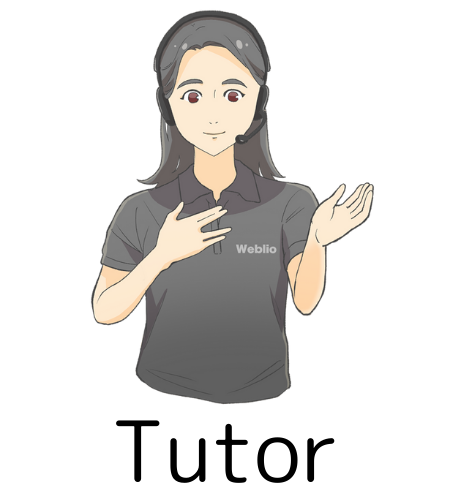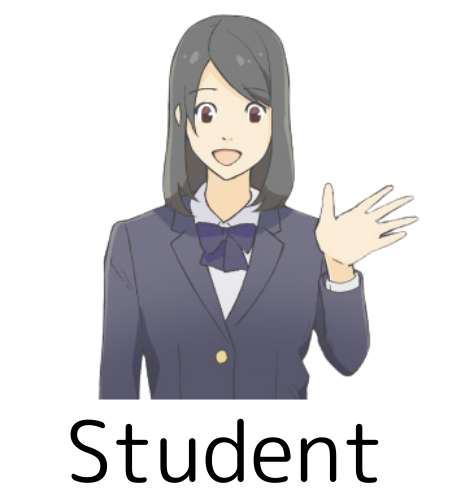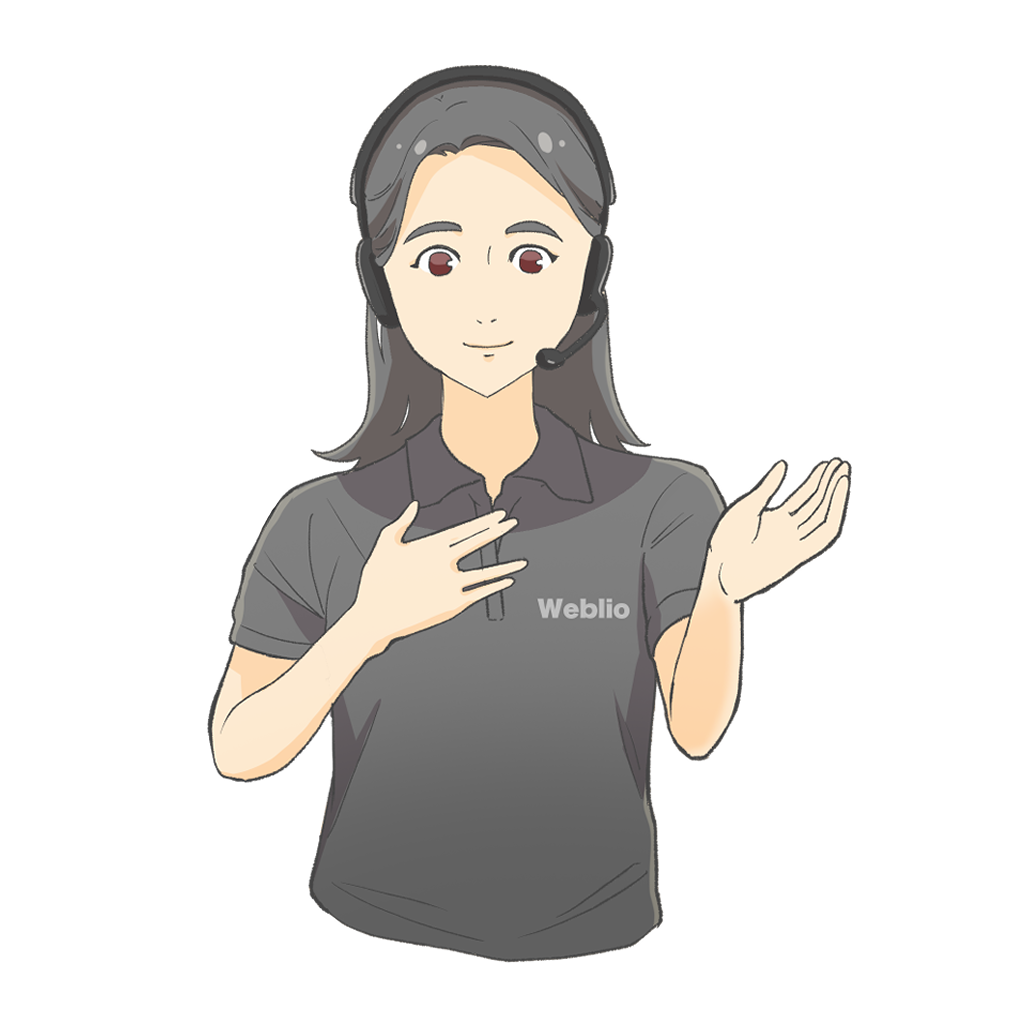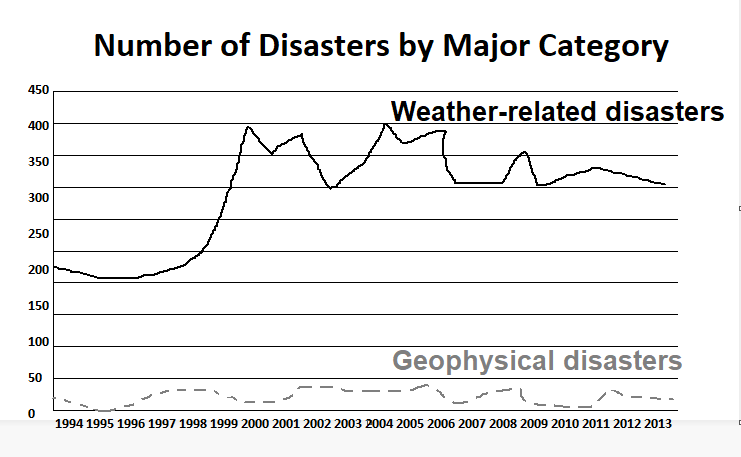Part A Introduction

TUTORS NOTE
– OPEN the tutor guide URL in the Pinned message.
– Follow the instructions in the tutor guide.
– Follow the instructions in the tutor guide.

Part A_1 Introduction
Let’s introduce ourselves to each other.
自己紹介をしましょう。
My name is ________. What is your name?
Part A_2 Introduction
I am ________. Nice to meet you.


Part A_3 Introduction
Nice to meet you too, ________. Have you ever experienced/seen extreme weather? What happened to you then? (typhoons, guerrilla rains, heavy snowfall, etc.)
Part A_4 Introduction
| Answer: |


Part A_5 Introduction
________________________________. Let’s begin our lesson!
Part B Listening 1

TUTORS NOTE
– OPEN the tutor guide URL in the Pinned message.
– Follow the instructions from [PART B_1] to [PART B_7] in the tutor guide
– Follow the instructions from [PART B_1] to [PART B_7] in the tutor guide

Part B_1 Listening 1
Please listen carefully while I read the passages.
Then, choose the letter that matches the content.
Then, choose the letter that matches the content.
講師がパッセージを一度読み上げます。そのあと内容に合う文章を次のa~dから選びましょう。最後に答え合わせをします。

TUTORS NOTE
– Tutors MUST read the passage in the tutor guide in [PART B_2]
– The tutor guide URL is in the pinned message
– The tutor guide URL is in the pinned message

Part B_2 Listening 1
| a. | The number of people that have been affected by natural disasters increased from 2.6 to 4.3 percent. |
| b. | Measures like earlier warning systems have helped to prevent serious disasters. |
| c. | A few weeks after the Haiti earthquake, there were 50 victims in the Chilean earthquake. |
| d. | The number of victims will stay the same if the government focuses more on disaster prevention. |
Part B_3 Listening 1
| Answer: |


Part B_4 Listening 1
Please listen carefully while I read the short passage once. Then, choose the letter of the correct answer.
パッセージの続きを一度だけ読みます。そのあと内容に合う文章を次のa~dから選びましょう。

TUTORS NOTE
– Tutors MUST read the passage in the tutor guide in [PART B_5]
– The tutor guide URL is in the pinned message
– The tutor guide URL is in the pinned message

Part B_5 Listening 1

| a. | Weather-related disasters will account for a larger number of natural disasters. |
| b. | More money should be donated globally to save vulnerable countries from natural disasters. |
| c. | The number of geophysical disasters is going to decrease thanks to accurate prediction. |
| d. | The number of victims of climate-related disasters will increase as the number of geophysical disasters decreases. |
Part B_6 Listening 1
| Answer: |


Part B_7 Listening 1
Now, let’s review your answers.
では、あなたの答えを復習してみましょう。

TUTORS NOTE
– Tutors MUST read the instructions in the tutor guide in [PART B_7]
– The tutor guide URL is in the pinned message
– The tutor guide URL is in the pinned message
Part B_8 Listening 1

Part C Listening 2

TUTORS NOTE
– OPEN the tutor guide URL in the Pinned message.
– Follow the instructions from [PART C_1] to [PART C_7] in the tutor guide
– Follow the instructions from [PART C_1] to [PART C_7] in the tutor guide

Part C_1 Listening 2
Please read the situation below. Then, please listen carefully while I read the dialogue.
After that, please answer the following questions.
After that, please answer the following questions.
下記の状況を読んでください。その後講師が会話文を音読するので、質問に答えましょう。
Part C_2 Listening 2
Emma and Tony are talking about job interviews.


TUTORS NOTE
– Tutors MUST read the dialogue in the tutor guide in [PART C_3]
– The tutor guide URL is in the pinned message
– The tutor guide URL is in the pinned message

Part C_3 Listening 2
1. What is Tony’s main point?
| a. | His life is so boring that he will lie the next time. |
| b. | Exaggeration in interviews is like lying. |
| c. | Anyone can tell if someone is exaggerating or not. |
| d. | He could have performed better if the interview had been longer. |
Part C_4 Listening 2
| Answer: |


Part C_5 Listening 2
2. What does Emily imply?
| a. | He should speak more slowly and accurately in job interviews. |
| b. | He should have as many job interviews as possible to get used to it. |
| c. | The more detailed the explanation of the presentation, the better. |
| d. | In interviews, making a good impression is more important than saying the right thing. |
Part C_6 Listening 2
| Answer: |


Part C_7 Listening 2
Now, let’s review your answers.
では、あなたの答えを復習してみましょう。

TUTORS NOTE
– Tutors MUST read the instructions in the tutor guide in [PART C_7]
– The tutor guide URL is in the pinned message
– The tutor guide URL is in the pinned message
Part C_8 Listening 2

Part D Vocabulary

Part D_1 Vocabulary
We will read aloud the words below. Please repeat after me. I will check your pronunciation.
単語を音読します。講師に続いて読みましょう。講師は発音を確認します。
Part D_2 Vocabulary
| 1. | politically |
|
政治的に
|
|
| 2. | depend on |
|
〔…に〕よる、〔…〕次第である
|
|
| 3. | equality |
|
平等
|
|
| 4. | circumstance |
|
事情、状況
|
|
| 5. | offensive |
|
侮辱的な、攻撃的な
|


Part D_3 Vocabulary
Now, let’s review some words from part D_2.
ではいくつかの単語、文章を復習してみましょう。
Part D_4 Vocabulary

Part E Reading

Part E_1 Reading
Please read aloud the whole passage below. I will check your pronunciation and intonation.
以下の文章を声に出して読んでみましょう。講師が発音、イントネーションについて確認します。
(Please send the mispronounced words and phrases to your student.)
Part E_2 Reading
Political Correctness
The way we describe people has changed in recent years. Not so long ago, many jobs had two names, one for men and one for women, depending on who had done them. As a result of a huge social movement to achieve gender equality at work, most names ending in “-ess” have disappeared in modern times.
We will get into trouble if we do not use the correct name. It might result in fines or the loss of your job. We might experience problems when we talk about certain groups of people. This is why the term “politically correct” is so frequently used these days. However, there is also a tendency to go too far in being politically correct in any circumstances, even though some words are not actually offensive.


Part E_3 Reading
Now, let’s review some words and sentences from part E_2.
ではいくつかの単語、文章を復習してみましょう。
Part E_4 Reading

Part F Reading

Part F_1 Reading
I will ask the following questions. Please answer questions 1 to 2 based on the passage, and 3 based on your opinion.
講師が3つ質問をします。1~2はパッセージの内容に基づいて、3はあなたの意見を伺います。

Part F_2 Reading
| 1. | Why has the way we describe people changed in recent years? |
Part F_3 Reading
| Answer: |


Part F_4 Reading
| 2. | What is the tendency of “political correctness”? |
Part F_5 Reading
| Answer: |


Part F_6 Reading
| 3. | Do you think that being forced to be politically correct is confusing? Why or why not? |
Part F_7 Reading
| Answer: |


Part F_8 Reading
Now, let’s review your answers.
では、あなたの答えを復習してみましょう。
Part F_9 Reading

Part G Making sentences

Part G_1 Making sentences
Please construct sentences using each word below.
以下の言葉を使って文章を作りましょう。
Part G_2 Making sentences
| depend on | |
| circumstance |


Part G_3 Making sentences
Now, let’s review your answers.
では、あなたの答えを復習してみましょう。
Part G_4 Making sentences

Part H Making essay

Part H_1 Making essay
Please answer this question:
“How much should we be politically correct? In your answer, explain when and why we should / shouldn’t be politically correct.”
“How much should we be politically correct? In your answer, explain when and why we should / shouldn’t be politically correct.”
“How much should we be politically correct? In your answer, explain when and why we should / shouldn’t be politically correct.”の質問に、いつ、どうしてかの理由も合わせて答えましょう。
Part H_2 Making essay
“How much should we be politically correct? In your answer, explain when and why we should / shouldn’t be politically correct.”
(Please read aloud your answer.)
答えを読み上げてください。


Part H_3 Making essay
Thank you for your presentation. You did a wonderful job. Now, let’s review your answer.
発表ありがとうございました。では、あなたの答えを復習してみましょう。その後、修正したあなたの答えを読んでみましょう。
Part H_4 Making essay

Part I Review and feedback

Part I_1 Review and feedback
Now, let us review the things that you learned in this lesson.
ではこのレッスンで学んだことを振り返りましょう。
(Please give a short feedback on how your student did on your class.)
| Grammar
文法
|
Pronunciation
発音
|
Vocabulary
単語
|
Comprehension
理解
|
|
|---|---|---|---|---|
 GOOD GOOD |
Was able to speak in complete sentences with minimal grammatical errors.
文法の誤りはほとんどなく、完全な文章で話すことができる |
Was able to pronounce most of the words clearly and correctly.
ほとんどの単語をはっきりと正しく発音することができる |
Used appropriate expressions learned in class.
習った表現を適切に使うことができる |
Was able to understand the passages and answer the questions correctly.
文章を理解し、質問に正しく答えることができる |
 FAIR |
Was able to speak in complete sentences with evident grammatical errors.
文法の誤りはあるが、完全な文章で話すことができる |
Mispronounced a few words.
発音の練習が必要な言葉がいくつかある
|
Used appropriate expressions learned in class and made a few errors in word choice.
たまにミスはあるが、習った表現を適切に使うことができる |
Had a little difficulty in understanding passages and answering questions.
文章を完全に理解するのは難しく、質問に正しく答えられないときもある |
 POOR |
Was able to speak using words only.
文章で話すのは難しく、単語だけで話すことができる |
Mispronounced most of the words.
発音の練習が必要である |
Used only a few words and expressions.
習った単語と表現を少しだけ使うことができる |
Had a hard time understanding passages and answering questions.
文章を理解するのは難しく、質問に答えるのは難しい |
Part J Free talk

Part J_1 Free talk
Let’s do a free talk about the following topics.
フリートークをしましょう。

Part J_2 Free talk
| 1. | Do you think the society is overly sensitive to what people say? Why or why not? What are some of the names that you consider rude? Why is it? |
Part J_3 Free talk
| Answer: |


Part J_4 Free talk
| 2. | When communicating with your friends and family, do you pay attention to how you call and speak to them? |
Part J_5 Free talk
| Answer: |
